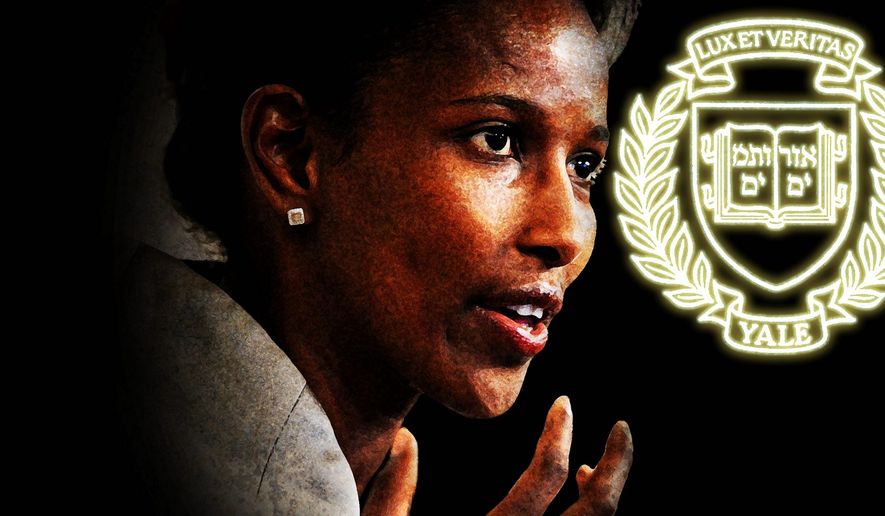ANALYSIS/OPINION:
Ayaan Hirsi Ali — black woman, feminist, Somali–born former Muslim, now atheist — is on the hit list produced by the Southern Poverty Law Center, called A Field Guide To Anti-Muslim Extremists. Why?
Why does the liberal, civil rights organization even have a list of anti-Muslim extremists? It has no list of extremists who are anti any other religion. And it has no list of religious extremists, either.
Is Ayaan Hirsi Ali an extremist? Not at all.
She is a brave, intelligent and outspoken writer whose personal experience as an African Islamic female fuels her passion for change. She has paid a high price for her convictions. Her book, “The Caged Virgin: An Emancipation Proclamation for Women and Islam,” and her personal story, “Infidel,” brought her storms of vilification. The title of her 2015 book advocates the need for reform in Islam (“Heretic: Why Islam Needs Reform Now”). That is hardly an extreme position … does anyone think political Islam is not in need of reform? One might have expected civil rights and human rights advocates, as well as feminists worldwide, to embrace her … but that hasn’t happened. Why not?
Perhaps Ms. Ali is toxic because it is dangerous to be around her. She worked on a film about women in Islam, “Submission,” whose director, Theo Van Gogh, was murdered on the streets of Amsterdam. A note on his body identified Ms. Ali as the next target. And no one has forgotten the global wave of violence that was provoked in the name of Danish cartoons judged offensive to Muslims.
If our society is to continue to be free, criticism of Islam must be as acceptable as criticism of any other religion. Freedom to oppose – or support – religions must not be suppressed by the threat of a blacklist. Religious writing and critique are basic to the American conversation.
Anti-religion writing became a growth industry post 9/11. Among the most popular writers was the late Christopher Hitchens (“God Is Not Great: How Religion Poisons Everything”), who was never referred to as an extremist, despite his no-holds-barred take down of Mother Teresa, a Catholic saint whom he called “a fanatic, a fundamentalist and a fraud.” In “The Missionary Position: Mother Teresa In Theory And Practice,” Hitchens argued that Mother Teresa was a friend of poverty, but not of the poor, who supported policies that would keep them poor, while befriending the reprehensible rich. Hitchens wrote that Mother Teresa collected huge donations, with never an audit or accountability. Harsh criticism, indeed.
Hitchens’ hostility to the saint, and to the Catholic Church that beatified her, was over-the-top. But his name never appeared on any Southern Poverty Law Center list of extremists. He once got kicked, and for a while received death threats from people displeased with his opinions, but on the whole Hitchens was able to offend large segments of society and continue to live a free, happy life.
There is no reason for criticism of Islam to be less acceptable than criticism of Christianity. Criticism is the price as well as the privilege of living in a free society.
Blacklists have earned their ugly reputation. A “field guide” for journalists of political enemies to be shunned as extremists is nothing but the worst form of McCarthyism.
The Southern Poverty Law Center should remove its offensive blacklist from the Internet.




Please read our comment policy before commenting.